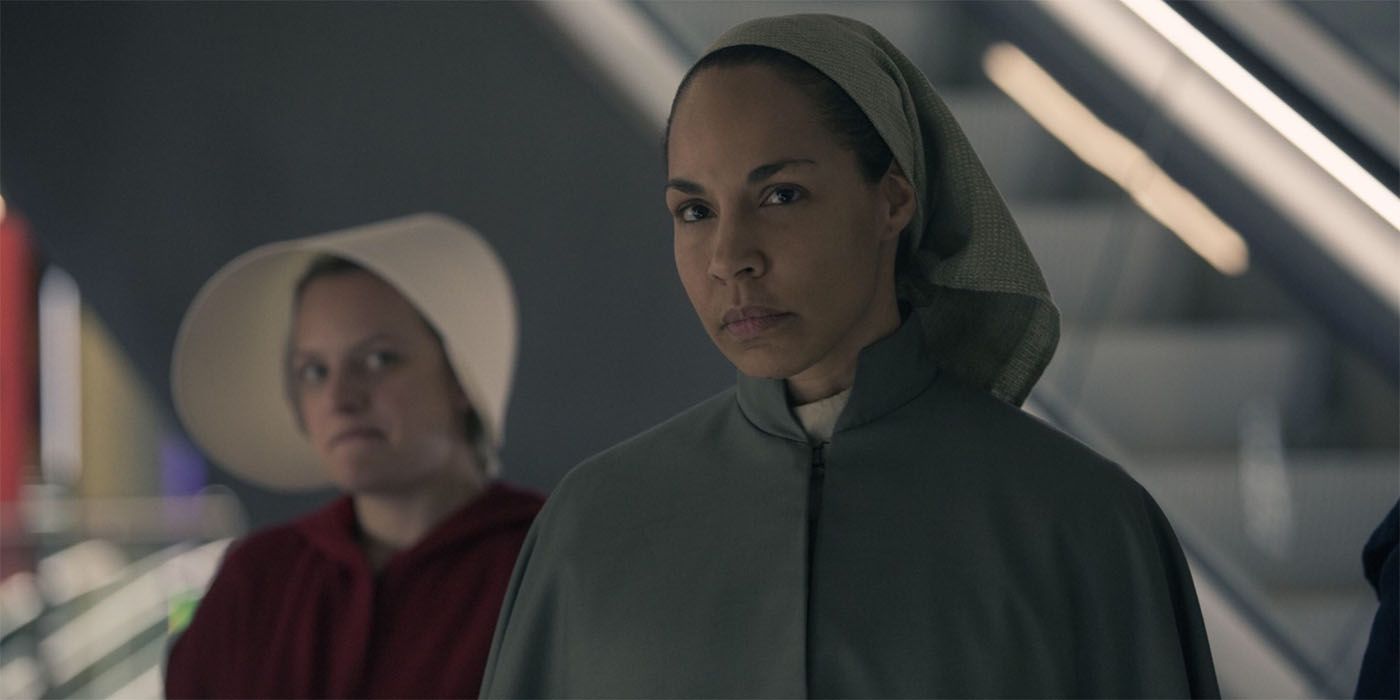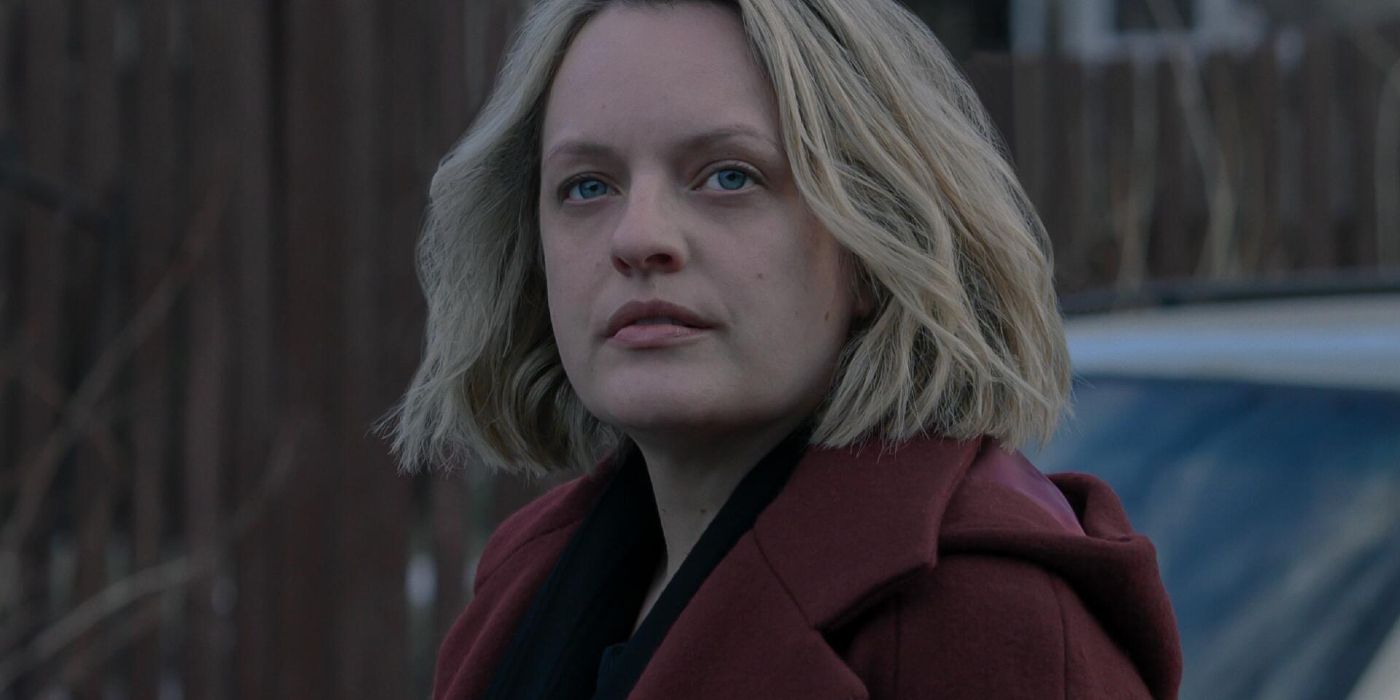Content Warning: the following article contains discussions of sexual violence.
Amanda Brugel, who plays Rita Blue on The Handmaid’s Tale, speaks out about the show’s depictions of violence. Since its premiere in 2017, the Hulu drama has had a certain amount of violence factored into its premise. The series is an adaptation of the Margaret Atwood novel of the same name, which takes place in a dystopian world set after a Second American Civil War and focuses on a totalitarian society that subjects fertile women – referred to as “Handmaids” – to child-bearing slavery.
Since its beginning, as well, The Handmaid’s Tale has faced increasing questions about whether its violence has gone too far. While commenters acknowledge that the adaptation has always been graphic, and at times even gruesome, it’s been argued that the torture that June (Elisabeth Moss) and others face has become repetitive. Some have gone as far as to claim the series often veers into the realm of "torture porn," a label often applied to excessively violent horror films like the Saw franchise.
Brugel addresses those complaints in a recent interview with Digital Spy, defending The Handmaid Tale. She expresses the view that the series’ portrayals of violence and misogyny help to make clear that those issues are far from settled. The actor also shares her belief that the drama simply seeks to reflect the cycles of abuse that many women tragically endure in real life. Read Brugel’s full quote below:
I really think the only way to make an impact is to make people uncomfortable. Not so uncomfortable that they turn away, but that it hits a nerve in order to make people stand up and pay attention. Nothing that has been shown in the show is new. These are things that happen all around the world, constantly. And so while it’s uncomfortable and it’s not easy to digest, I think it’s important to show that we’re not even close to being done with our journey, especially towards violence against women, misogyny, and there being equity between the genders.
The ongoing debate flared up with The Handmaid’s Tale season 4, as it featured some of the show’s darkest moments yet. In the premiere, a fourteen year-old girl is forced into marriage and repeatedly raped by her husband’s friends. At other points, June is waterboarded (which calls to mind traumas faced by prisoners) and has to witness her fellow Handmaids die in frightening, cruel ways. In one of the season’s bleakest moments, June gives up information on her fellow Handmaids in order to save her daughter from experiencing torture.
The Handmaid’s Tale is not alone in being criticized for its depictions of intense violence, of course. Game of Thrones, for example, was criticized for the same qualities during its run. The debate often boils down to questions of whether the violence serves a worthwhile narrative purpose or is used for shock value, or for the sake of a plot twist that seeks to commodify very real traumas. It’s a fraught question that many series and films will continue to face as they seek to dramatize the injustices that exist in everyday life.
Source: Digital Spy


